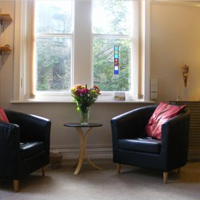June 6, 2017
 A relationship can be defined as the way in which you connect and engage with other people. Relationships can take many forms – from the shopkeeper you exchange pleasantries with whilst making your purchase, to your next door neighbour; they don’t have to revolve around family ties or love.
A relationship can be defined as the way in which you connect and engage with other people. Relationships can take many forms – from the shopkeeper you exchange pleasantries with whilst making your purchase, to your next door neighbour; they don’t have to revolve around family ties or love.
That’s why it is important to consider the relationship you will have with your counsellor or therapist.
You’ve probably thought about it so far as the same as a doctor/patient relationship – you turn up for your sessions, they deliver the counselling, and you start to feel better. Not only could this way of thinking be further from the truth – it could actually be preventing any real progress being made in terms of recovering from your anxiety, or depression.
So what is a therapeutic relationship, and why does it matter so much?
When you are around people that you trust, you can truly be yourself and aren’t afraid to open up, or feel the need to hide things. Sometimes, anxiety and depression can prevent us from feeling that way with anyone – which is why we might turn to counselling.
In truth, trust can be a difficult concept for many people. How you were raised can impact on your ability to connect with other people, if you didn’t experience being loved for yourself and were reliant on others for validation. Or perhaps everyone you’ve trusted has let you down in some way and you can no longer allow yourself to get hurt like that again.
Your past experiences can impact on your ability to form connections and relationships in the present.
So the idea of forming a relationship with a stranger can be difficult to grasp, but the ‘bond’ that develops between you and your therapist, is one of the most powerful tools in making the changes you want to see.
How you connect and engage with your therapist is the ‘relationship’. As you get to know each other better and trust starts to develop, the relationship will strengthen – enabling you to address your issues and concerns in an easier and different way than you could before.
You’ll feel able to drop the mask, stop ‘acting’ and feel safe to challenge that vicious circle of negative thoughts and actions.
In truth, the relationship is crucial to the therapy process and getting you to where you want to be, but it has to be seen as an equal power exchange – an alliance, between you and your therapist. Counselling and therapy isn’t ‘top down’ treatment, where you do what you’re told and you’ll start feeling better, unlike conventional western medicine which is exactly that!
Therapy can be about finding the answers together with your therapist and finding a way to act on them.
Using the relationship you’ll develop with your therapist, you’ll be able to be your authentic self in a safe environment. Enabling you to try new ways of thinking, relating to others, and sharing your thoughts with someone impartial and genuinely interested in helping you.
So it is important that you find the right therapist for you – and that means you may need to visit more than one for a consultation. Again, this goes against everything we understand of health care today – you visit a doctor and they tell you what to do. Counselling and therapy is very different, and because the relationship you’ll develop is so important, taking the time to get things started right is crucial.
 Counsellors, and therapists, all have different ways of working. For example, I work from a relational therapeutic style – so you can expect me to react to what you say, and actually be engaged with you throughout the session with the aim that your emotional well-being and capacity is enhanced. The best way to decide what will work best for you, is to visit as many counsellors and therapists as you can – ask them lots of questions, see how they react to you, what’s your gut instinct telling you?
Counsellors, and therapists, all have different ways of working. For example, I work from a relational therapeutic style – so you can expect me to react to what you say, and actually be engaged with you throughout the session with the aim that your emotional well-being and capacity is enhanced. The best way to decide what will work best for you, is to visit as many counsellors and therapists as you can – ask them lots of questions, see how they react to you, what’s your gut instinct telling you?
Dealing with difficult emotions or traumatic memories can be easier with an objective therapist.
You may have heard about transference in therapy – possibly from film or TV. Rather than a stereotyped Hollywood portrayal of a patient falling head over heels in love with their therapist, transference occurs without the client being aware. It’s an unconscious process, beyond our control, where issues we have with others are transferred to the therapist.
Transference can be a very positive process within therapy, as it enables you to challenge and address the issues without affecting your relationship with the person concerned. For example, if you hold anger towards your mother for a painful childhood, this can be transferred to the therapist. Though you might not be aware it’s happening, your therapist will be able to use the transference to respond or challenge what you are saying – or even point out what’s being said and how that relates to your past experiences. This enables you to process the anger and pain in a safe and controlled way.
As with any good relationship – consistency is important.
 It’s called continuity of care, but essentially it means attending sessions regularly. Unlike the NHS where cancelled and re-arranged appointments can seem to be the norm, counselling sessions are usually at the same time every week. Your therapist will have blocked that time off from their diary for weeks if not months ahead.
It’s called continuity of care, but essentially it means attending sessions regularly. Unlike the NHS where cancelled and re-arranged appointments can seem to be the norm, counselling sessions are usually at the same time every week. Your therapist will have blocked that time off from their diary for weeks if not months ahead.
Whilst having a weekly routine of being able to discuss issues on a set day works well, this may mean that you’ll keep hold of issues that are bothering you until your next counselling session. If you were unable to attend that session you could be holding on to them for a lot longer. This could impact on any progress you had made and affect the therapeutic relationship.
All relationships can be difficult, and you will find the therapeutic one no different at times.
However, it is a relationship that you can change and use for your own benefit. It’s a practice model for how you want to be able to engage with the people around you, without any of the issues, bias or history attached to it.
 The key differences you’ll find with a therapeutic relationship is that it is objective. How we see others is coloured by our own experiences and perspectives, we lack objectivity when dealing with other people. A relationship with a counsellor or therapist is designed to be challenging – to pick apart those perspectives and why you see people a certain way, often through the therapeutic relationship itself.
The key differences you’ll find with a therapeutic relationship is that it is objective. How we see others is coloured by our own experiences and perspectives, we lack objectivity when dealing with other people. A relationship with a counsellor or therapist is designed to be challenging – to pick apart those perspectives and why you see people a certain way, often through the therapeutic relationship itself.
The other side to that is that you’ll find the relationship to be an empathic one. Your therapist is there for you. Empathy is the ability to understand the feelings of others. Loved ones and friends can find it difficult to be empathic because how they respond to you is often determined by their experiences and perspectives. A therapist has no pre-conceived ideas about you, enabling you to talk about things openly and safely.
Though it’s important to understand that you will be challenged by your therapist as part of your relationship; although empathic, your therapist isn’t there to be a sounding board and reinforce your negative beliefs.
Don’t worry, challenging isn’t about being confrontational and aggressive towards you. It’s actually a way of supporting you effectively through picking up on how you describe things and people affecting you. For example, “I always hate that” , “I am hopeless at” might be challenged. Do you really mean ‘always’? Effective and empathic challenge enables you to develop your thought processes and move on from what’s affecting you.
Finding the right therapist to build a rapport and strong relationship with is the key to counselling or therapy being successful in addressing your problems.
 You need to feel safe, secure and that there is an empathic rapport that can be built on to enable effective challenge and support.
You need to feel safe, secure and that there is an empathic rapport that can be built on to enable effective challenge and support.
To arrange your initial consultation and discover if I’m the right therapist for you, get in touch with me today at: claire@insightcounsellingbrighton.co.uk or use the Contact Page.
